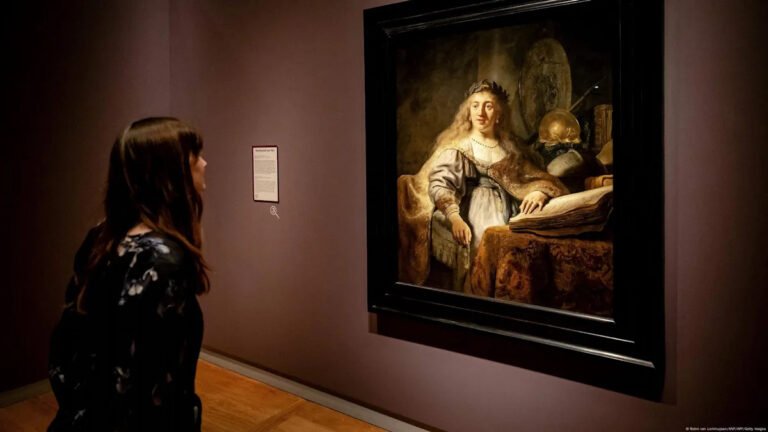The announcement turned heads: US art collector Thomas Kaplan, owner of the Leiden Collection — the world’s largest private collection of 17th-century Dutch art — plans to sell portions of his collection. Not the paintings themselves, however, but virtual shares in them. In Rembrandt‘s case, there are to be enough shares that even people with modest budgets could buy in.
“To my mind the best way to evangelize for Rembrandt is by giving millions, maybe tens of millions, of ordinary people the opportunity to own a Rembrandt,” Kaplan told The Art Newspaper. That raises the question: What does “ownership” really mean in this context?
Art as an investment — and a story
People buy art for all kinds of reasons. Many collectors want a personal relationship with the work they purchase — to live with it, look at it, perhaps lend it to exhibitions. Others see art as an investment to earn from with eventual resale, which doesn’t necessarily exclude genuine interest in the art itself.
Blockchain technology has opened new ways to own and trade art. Digital platforms now make it possible to divide artworks into virtual fractions that can be bought and sold individually — a concept known as “fractional ownership.”
In the case of the Leiden Collection, what’s being divided isn’t the artwork but the ownership. No one investor owns a specific corner of a canvas; rather, everyone together owns the whole. Kaplan has already announced his intention to keep a majority stake so that he can continue lending the collection to museums.

US art collector Thomas Kaplan and a Rembrandt self-portrait from his Leiden CollectionPatricia Sigerist/IMAGO
That means, in theory, that thousands of people could one day own pieces of Rembrandt’s legacy — possibly without ever having seen the originals. For individual investors, the value would lie partly in the hope that their shares will appreciate in value, and partly in the undeniable storytelling appeal of such an investment.
The myth of a ‘democratized’ art market
As spectacular as this may sound, art market expert Dirk Boll of Christie’s auction house doesn’t see in fractional ownership a revolution in the art market — even as more platforms begin to offer such investments. The whole enterprise, he says, is very complex. Art, after all, isn’t an easy asset class. It comes with unavoidable high costs — insurance, special storage conditions, conservation, and so on.
Investors, of course, expect returns, which in a shared ownership structure generally come in two ways. “You either have to resell the works at a profit, or there eventually develops a secondary market for the share certificates. And both are very complex matters,” Boll told DW. However, secondary trading — in other words, reselling the shares — often fails because there are more certificates than demand.
As for the oft-repeated claim that fractional ownership “democratizes” the art market, Boll isn’t convinced. “That’s a nice slogan,” he says, but the art market is at base as democratic as the car market. “You can buy any car you can afford. Depending on your budget, it’s either a VW Polo or a Mercedes S-Class. It’s a commercial, economic system.”

Art market expert Dirk BollChristie’s
Still, Boll concedes, shared ownership can make highly valued works accessible to more people — as in the case of Rembrandt. “We’re seeing shared ownership in many other fields,” he says, comparing it to car-sharing or co-owned vacation homes. And it’s hard to deny, he added, that ventures like Kaplan’s could spark broader public interest in Rembrandt’s art.
New possibilities for inheritance
For Kaplan, dividing up his more than 200-piece collection is also a practical solution to a personal problem: what to do with the Leiden Collection after he’s gone. He told The Art Newspaper that while his three children admire the collection he and his wife have built up, they have no idea what to do with it someday. That’s why they’ve asked him to find a solution for its future.
Indeed, art market expert Boll says, that could be an interesting approach to keeping the collection together. In the art world, there are many cases in which parts of collections are sold to cover the costs arising from inheritance, for example. “That’s naturally one of the art market’s basic functions,” he said — “to liquidate estates, at least in part, to raise the funds to pay taxes.” Fractional ownership could offer a way around that: The necessary funds could be generated by selling share certificates instead.
The Leiden Collection’s share certificates are not yet on the market, and it remains to be seen how they will be received. One thing seems certain, however: At a dinner party, it’s hard to top the line, “I bought an actual Rembrandt yesterday!”
This article was originally written in German.

